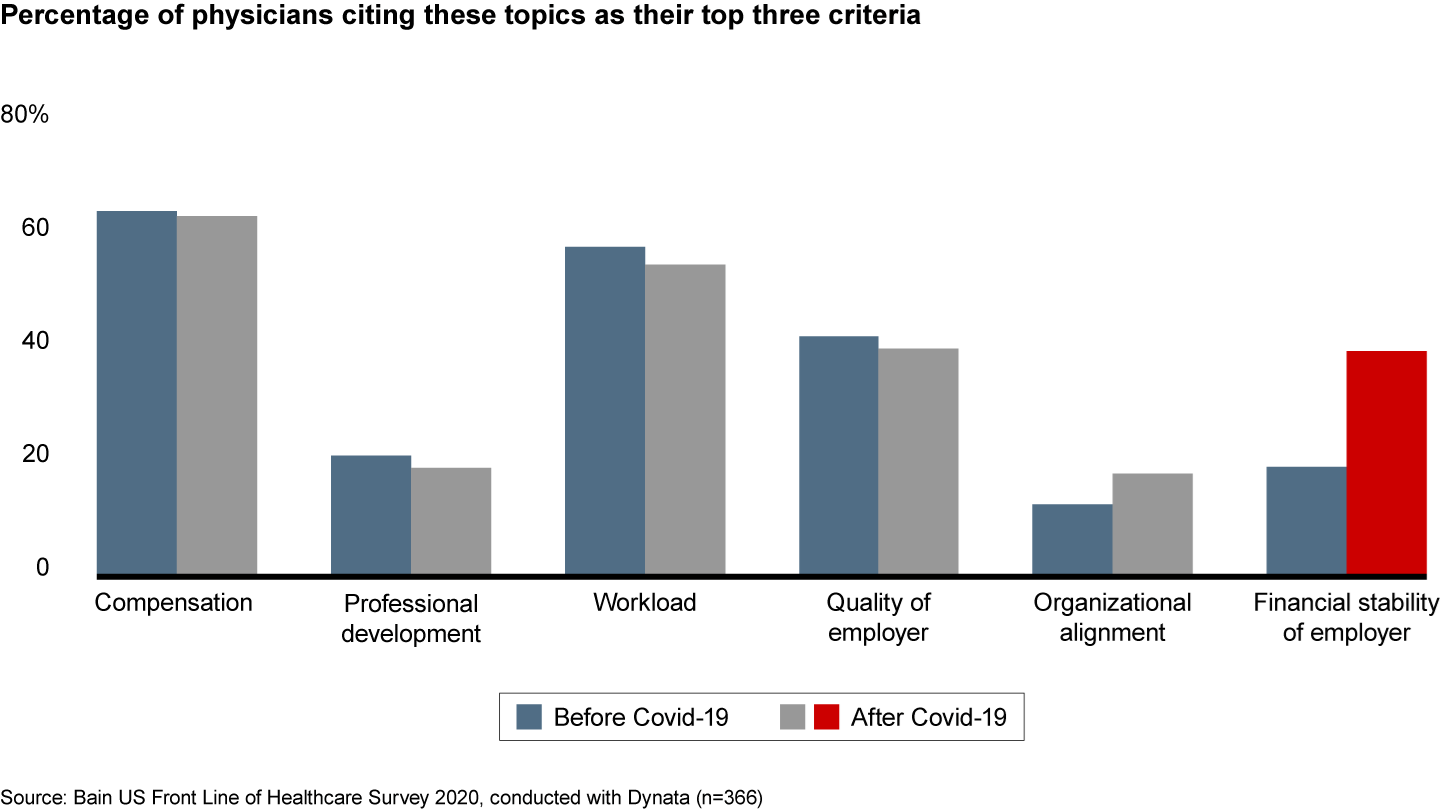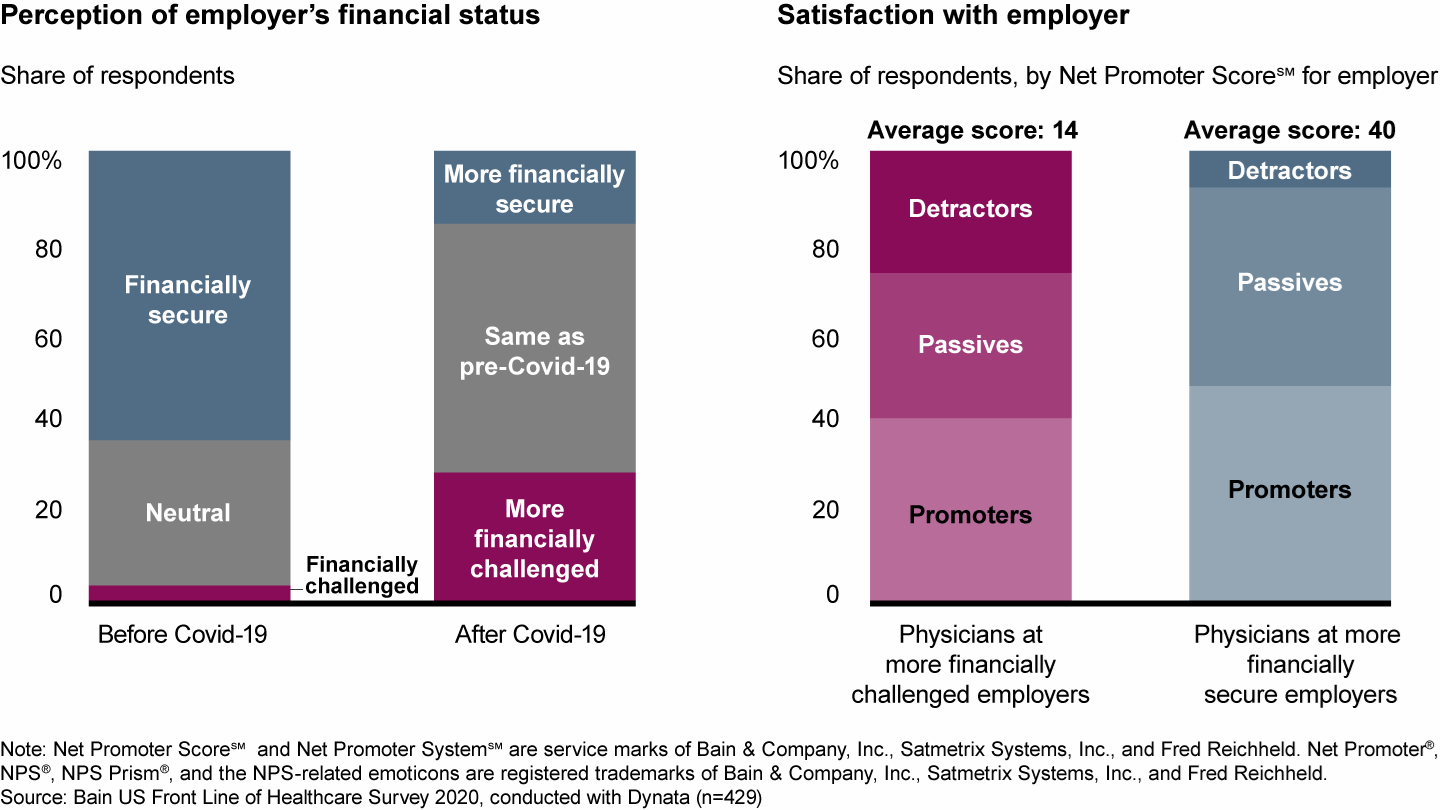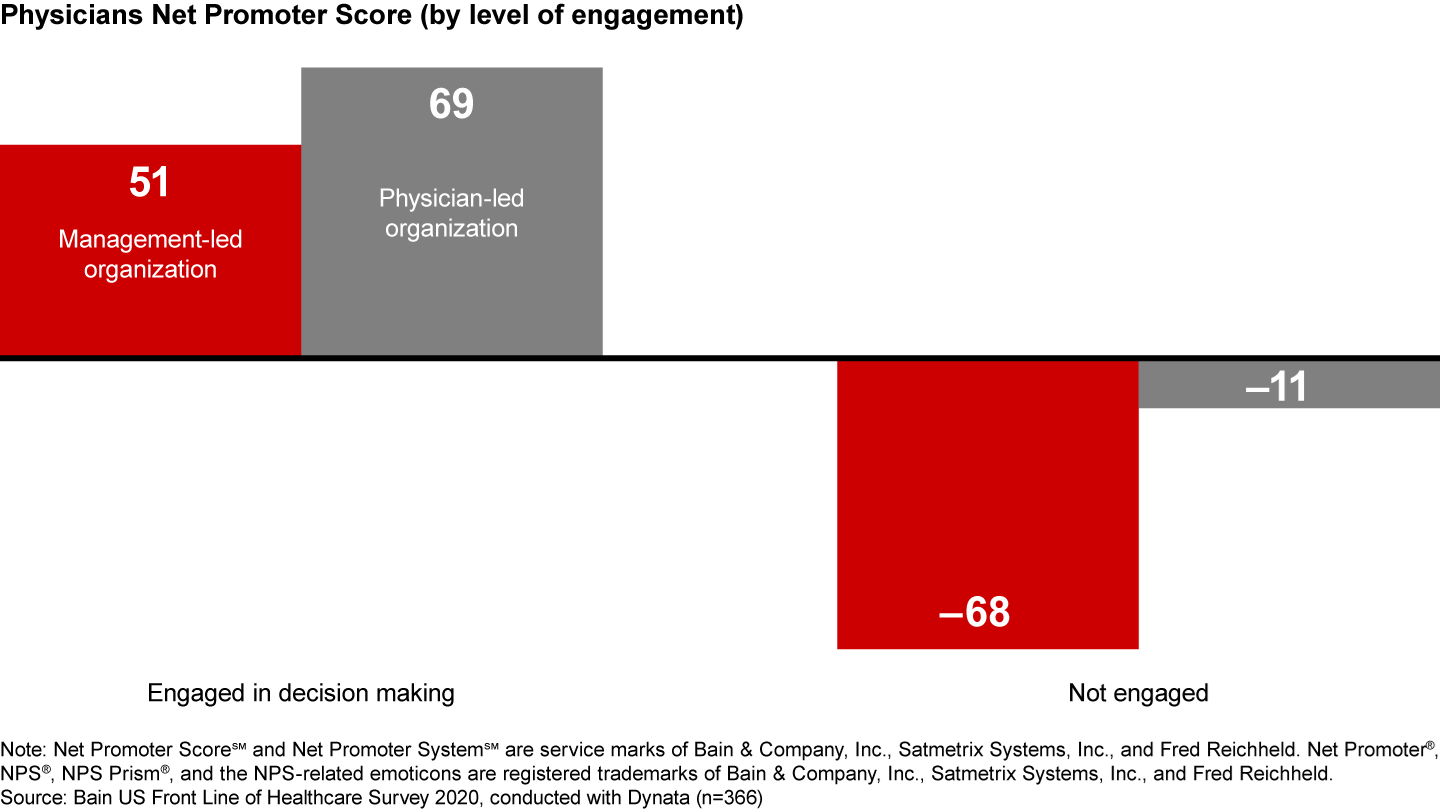Brief

In evidenza
- More than 40% of physicians now rank employer financial stability as important vs. 22% before Covid-19, a new Bain survey shows.
- While physicians increasingly value the economic security of management-led organizations, they often feel disenfranchised when employed by these institutions.
- Management-led organizations can increase physician engagement by offering greater clinical autonomy and involvement in decision making.
This article is part of Bain's report US Healthcare Trends 2020: Insights from the Front Line. Explore more insights from the report here.
The Covid-19 pandemic has exacted a physiological, psychological and financial toll on healthcare providers. Of the physicians surveyed in Bain & Company’s 2020 US Front Line of Healthcare Survey, 70% reported being concerned for their health and safety during the crisis and 75% expect compensation cuts in 2020, a response that is consistent across specialties.
And yet, our survey shows most physicians are still energized by their profession. Healthcare professionals seek the same employer attributes as before the crisis: stable compensation, a manageable workload and decision-making autonomy. What has changed is an increased interest in financial stability. Forty-two percent now rank employer financial stability among their three most important professional considerations, compared with 22% before Covid-19 (see Figure 1). This comes as no surprise, given the economic toll the pandemic has taken on physicians and provider systems. But it considerably improves the appeal of large, economically stable management-led organizations.
Since Covid-19, more physicians cite the financial stability of their employer as a key professional criterion


In our 2017 US Front Line of Healthcare Survey, physicians expressed a clear preference for working for physician-led organizations. Management-led organizations received a Net Promoter Score℠ of 11 as place to work, compared with 36 for physician-led practices. That preference was stronger in 2020: The score at physician-led organizations is now 40 points higher than at those at management-led organizations. However, the 2020 survey revealed that physician-led medical groups are feeling more economic pressure, compared with management-led institutions like large hospital groups, which tend to benefit from stable cash flows and greater financial security (see Figure 2). Some 80% of physicians employed by physician-led organizations expect less compensation in 2020 than in the same period last year vs. about 65% of physicians at management-led organizations.
Amid the global pandemic, hospital finances worsen and physicians’ satisfaction drops


Management-led organizations can increase physician engagement and improve their Net Promoter Score by providing more clinical autonomy and adopting some of the best practices of physician-led organizations, such as involving doctors in decision making on strategy and patient care. At management-led organizations, physicians who are engaged in decision making reported a Net Promoter Score more than 100 points higher than those who are not (see Figure 3). That indicates that the key to physician satisfaction may depend less on the type of employer than on involvement in decision making. Physicians value having a voice in organizational strategy, including decisions on which specialties to expand or the type of clinic to open.
In management-led organizations, physicians engaged in decision making have a Net Promoter Score℠ of 51 vs. –68 for those who are not engaged


Medtech procurement is perhaps the best example of a decision-making partnership. Our research shows surgeons increasingly collaborate with procurement administrators, weighing clinical and financial data and considering multiparty interests in final selections. Physician engagement in cost-saving models and care management teams delivers a dual benefit: Organizations get more innovative solutions and more satisfied physicians.
As they cope with Covid-19, physicians are seeking greater stability and management-led organizations are best-positioned to offer it. These organizations can create an attractive and long-term work environment for physicians by including them in decision making.
Net Promoter®, NPS®, and the NPS-related emoticons are registered trademarks of Bain & Company, Inc., Satmetrix Systems, Inc., and Fred Reichheld. Net Promoter Score℠ and Net Promoter System℠ are service marks of Bain & Company, Inc., Satmetrix Systems, Inc., and Fred Reichheld.

About the Research
Data powered by Dynata, a leading global first-party data and insights platform.

Insights from the Front Line
From physician burnout to telehealth, the pandemic has reshaped the healthcare landscape. Bain's series, US Healthcare Trends 2022: Insights from the Front Line, examines how the industry is confronting current challenges, including patient and physician satisfaction, the transition to value-based care, and omnichannel care.